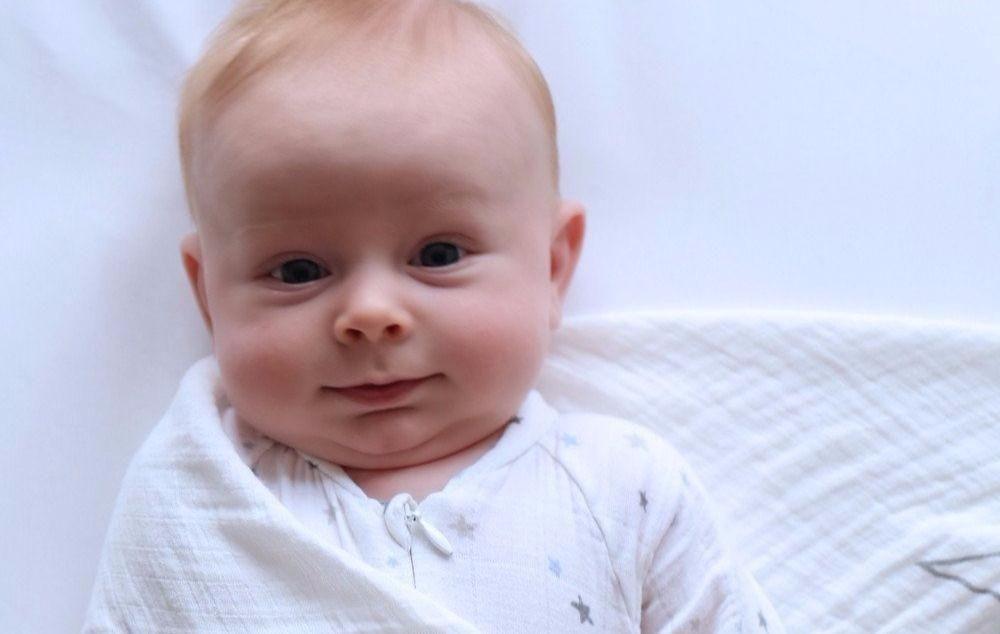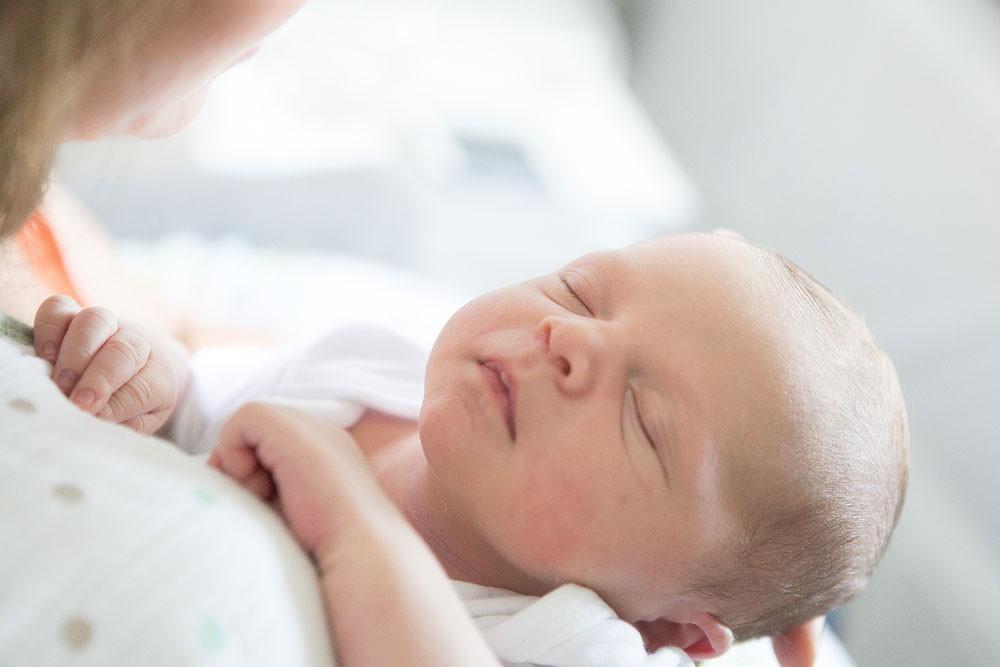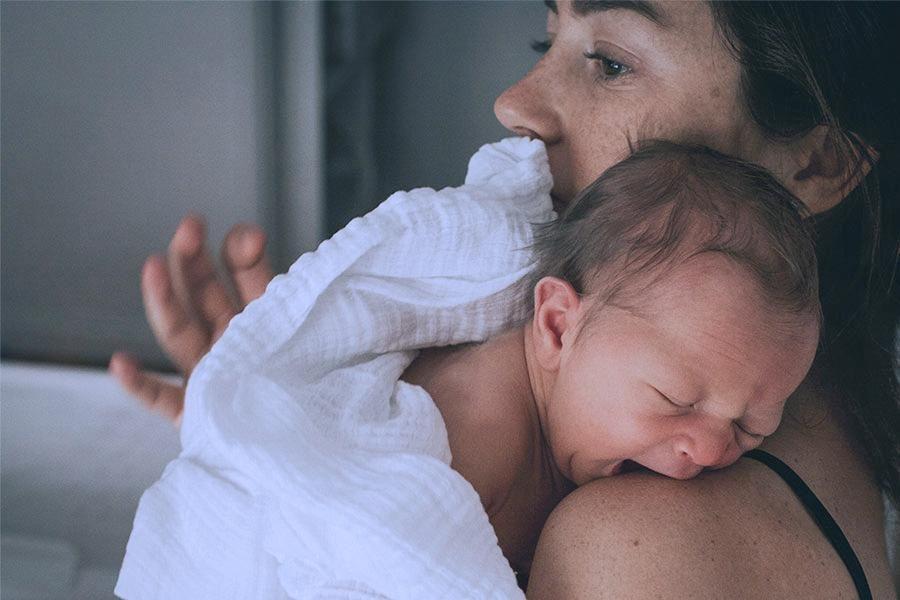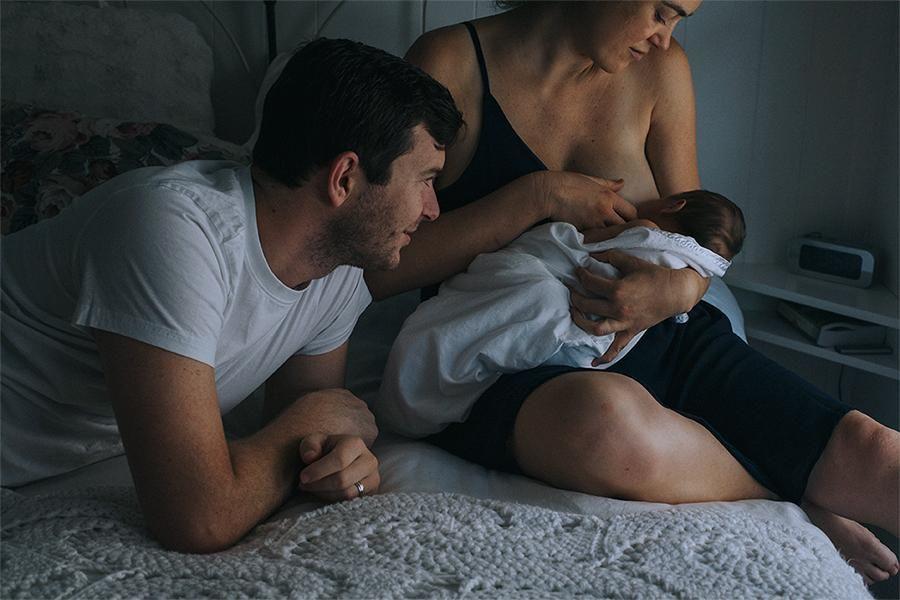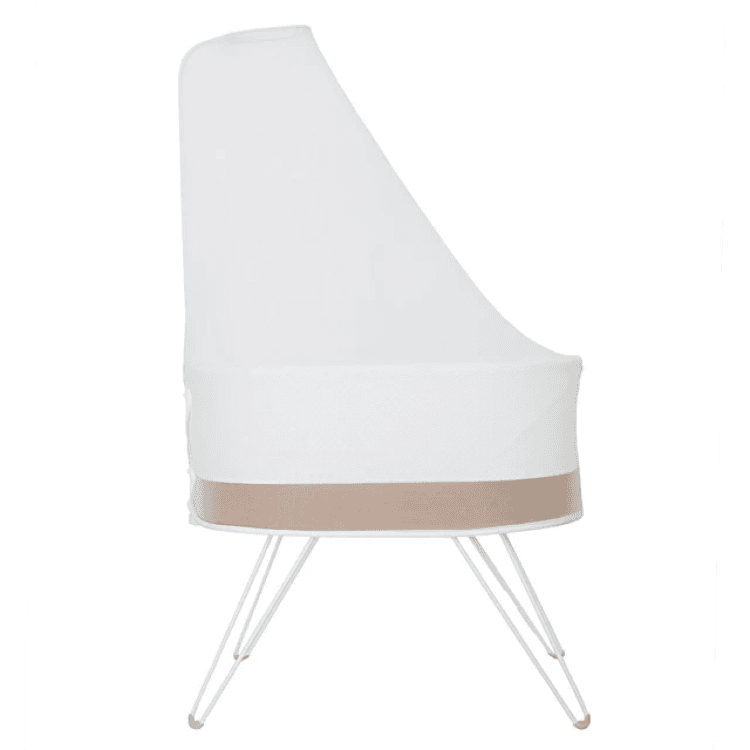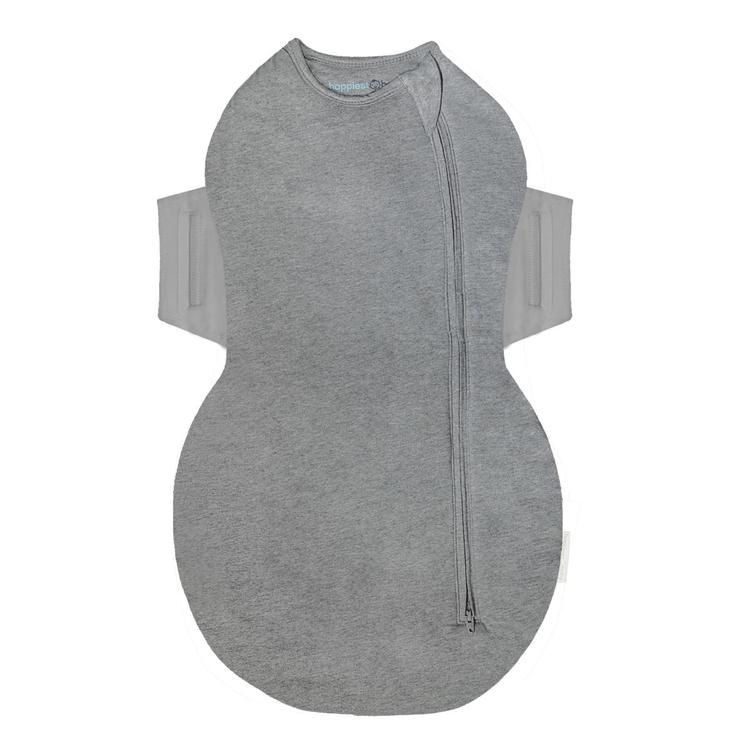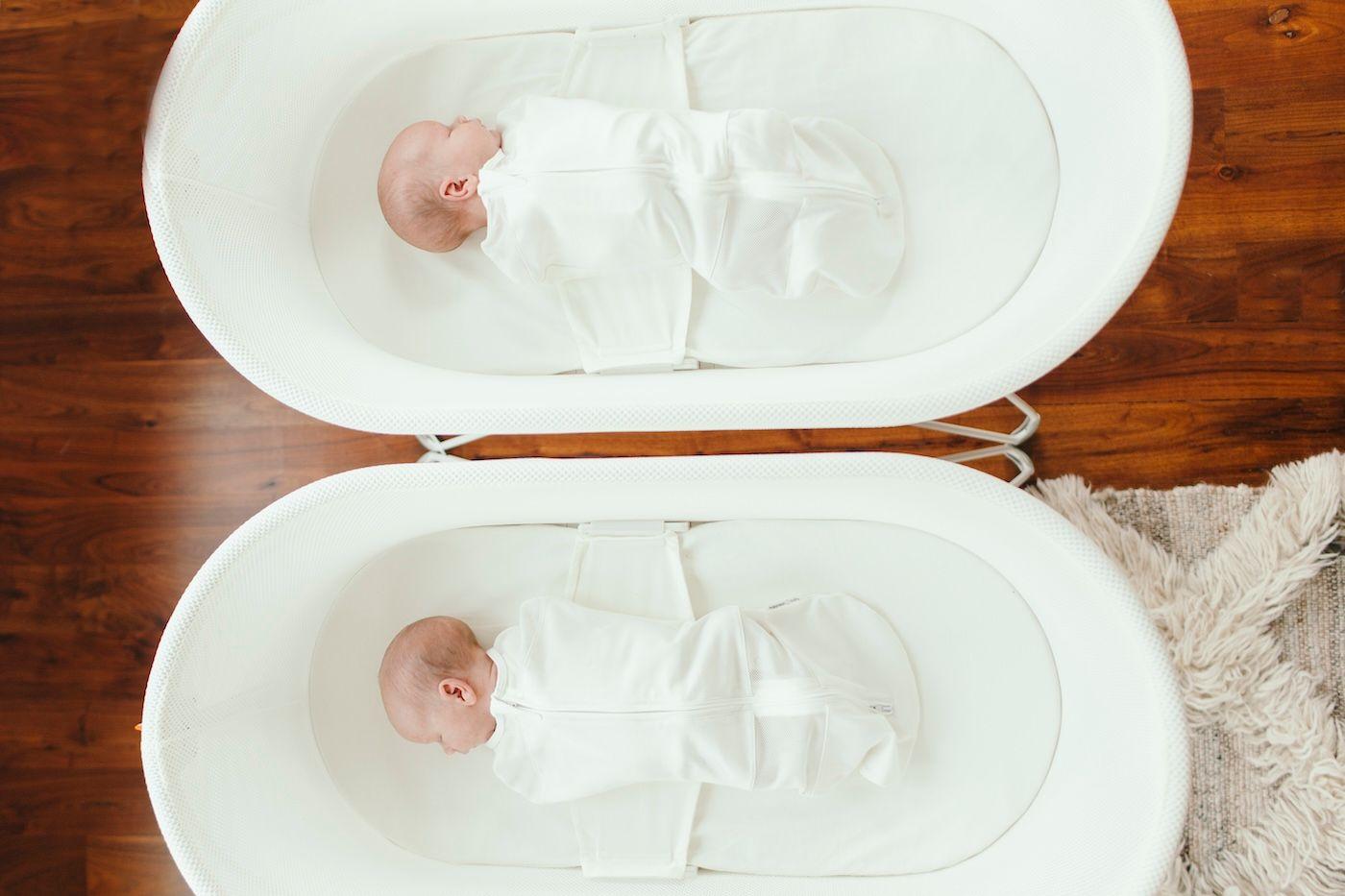PREGNANCY
Your Guide to High Blood Pressure in Pregnancy
Gestational hypertension is increasingly common—and potentially dangerous, even after birth.
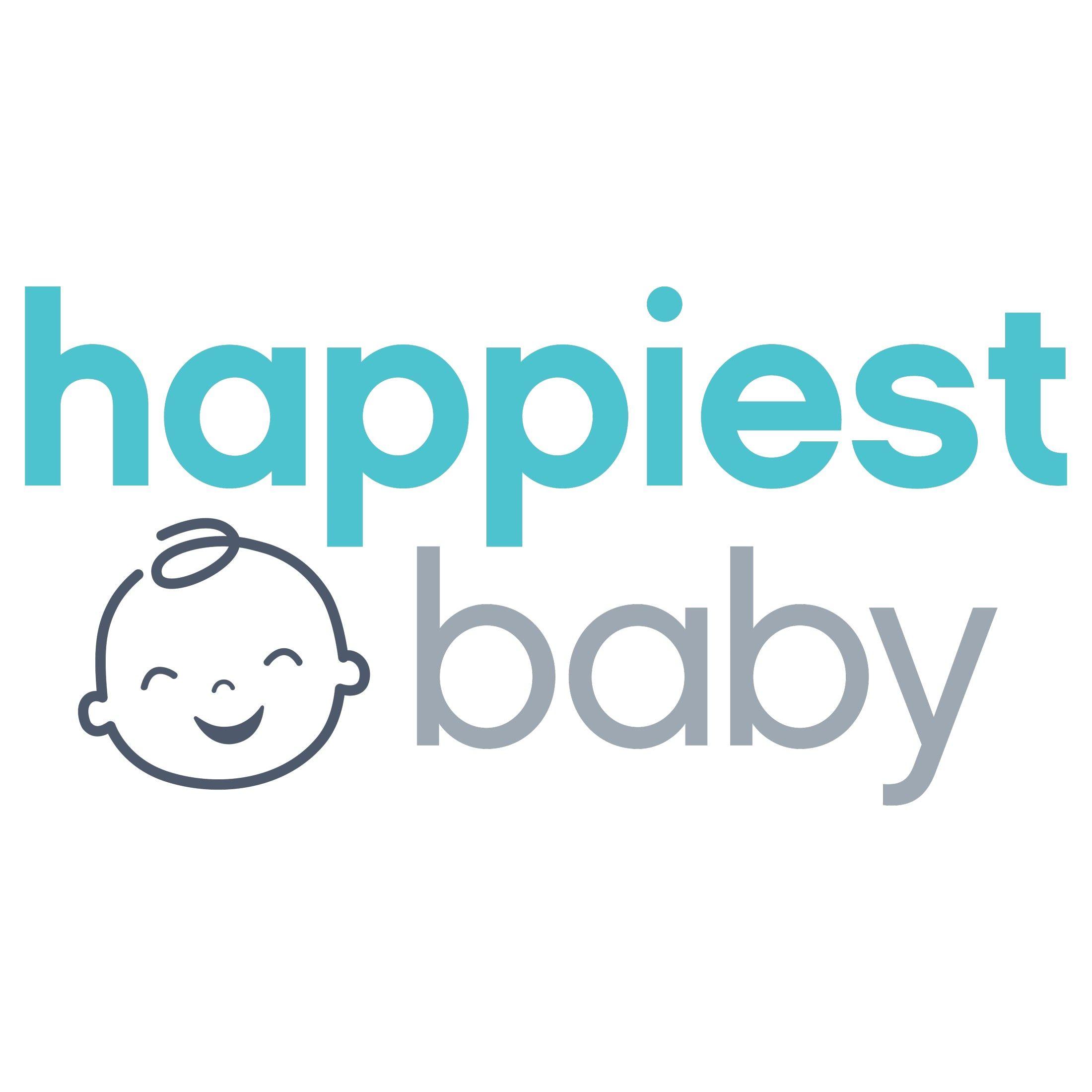
Written by
Happiest Baby Staff
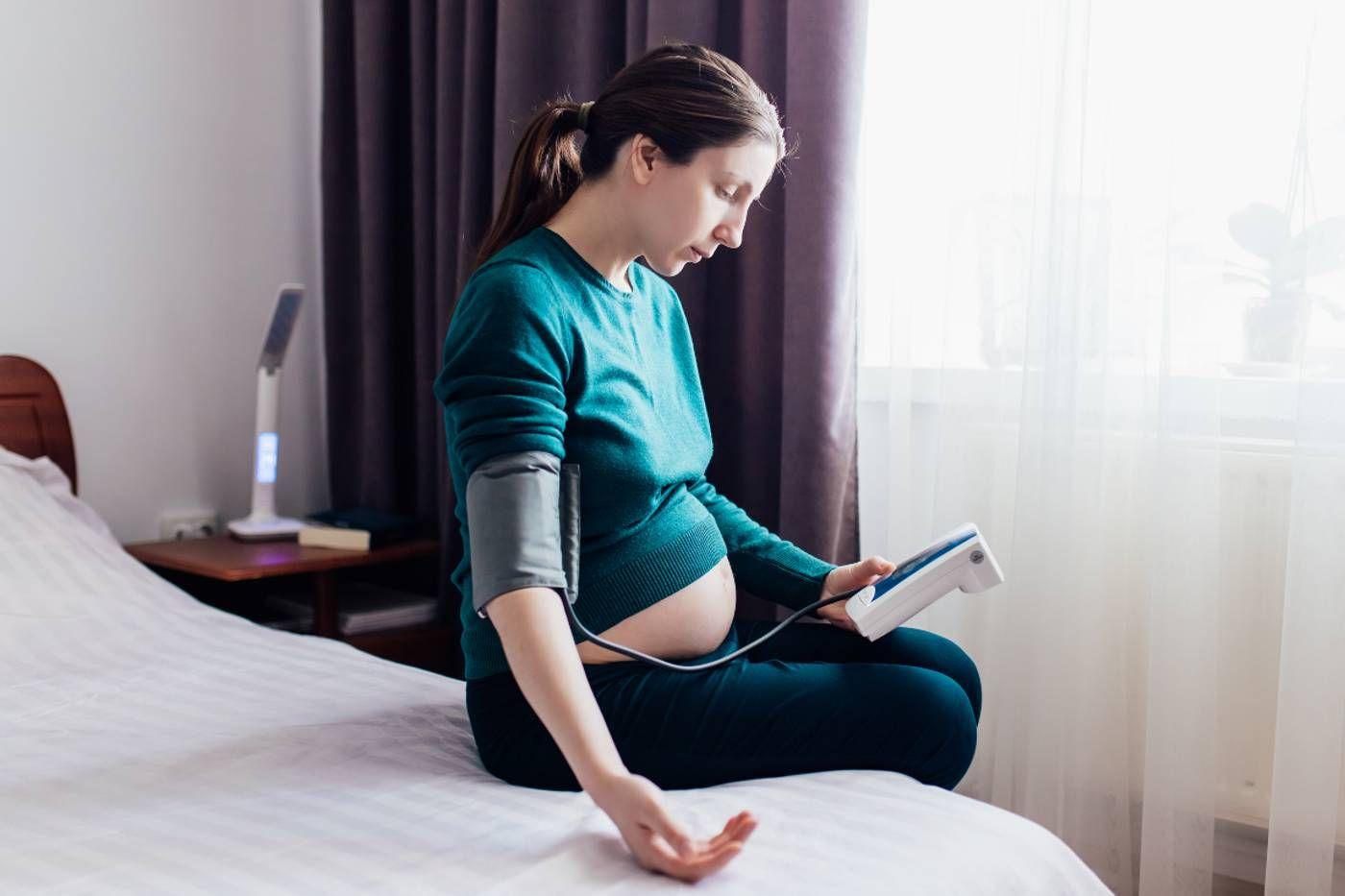
Each antenatal visit, your provider slaps a cuff on your upper arm, squeezes a bulb until you feel a tight hug, then, relief. For pregnant people, this quick test is as standard as weeing in a cup. And unless you have a history of blood pressure issues, there’s a good chance you never gave this antenatal test another thought. But you should. High blood pressure (hypertension) in pregnancy is a major cause of complications—and even death—for expecting parents and their babies—and it’s a problem that’s getting worse.
The best defence against high blood pressure in pregnancy? Knowledge. Here’s what you need to know about hypertension in pregnancy.
What is high blood pressure?
Your blood pressure is the measure of how hard your blood is pumping. More specifically, it gauges the pressure (or force) of your blood pushing against blood vessel walls (arteries). When you have high blood pressure, the force against your arteries is higher than normal. Your arteries bring blood from your heart to your lungs, where it picks up and carries oxygen to your organs and tissues. That means, when the pressure against your arteries is high, this entire cardiovascular system is impacted. The tricky thing about blood pressure is that it often changes throughout the day. So, you may have one high reading at, say, noon, but when it’s measured again three hours later, it may be just fine.
Why does blood pressure change in pregnancy?
Your body goes through so many changes during pregnancy, and your cardiovascular system is far from spared. For example, your heart now needs to work harder to keep up with the increased blood flow that goes hand-in-hand with pregnancy. Plus, your blood vessels now need to relax more to support this change. All of this has the potential to impact your blood pressure.
What is considered high blood pressure during pregnancy?
The story of blood pressure is told in two numbers, separated by a slash, such as 110/80 mmHg (or 110 over 80). The top number (110) is the pressure against your artery walls when the heart contracts. This is systolic blood pressure. The bottom number (80) is the pressure against the artery walls when the heart relaxes between contractions. This is diastolic blood pressure. Here’s the breakdown of what these numbers mean, according to the NHS:
- Normal Blood Pressure: Anything between 90/60 mmHg and 120/80 mmHg is considered normal blood pressure.
- Mild Blood Pressure: When your blood pressure falls between 140/90 and 149/99mmHg it may be checked regularly, but does not usually require treatment.
- Moderate Blood Pressure: If your BP measures between 150/100 and 159/109mmHg, you have moderately high blood pressure.
- Severe Blood Pressure: A reading of 160/110mmHg or higher means your blood pressure is considered severely high. Pregnant individuals with severe hypertension are at risk of very serious complications.
Types of High Blood Pressure During Pregnancy
High blood pressure in pregnancy is actually classified as “hypertensive disorders of pregnancy” or HDP, and it encompasses a few different types of high blood pressure.
Chronic Hypertension
Chronic hypertension either rears its head prior to pregnancy—or it develops before 20 weeks of pregnancy. This type of high blood pressure in pregnancy sticks around after birth, too. If you were on blood pressure meds before pregnancy, you have chronic hypertension.
Gestational Hypertension
Gestational hypertension may be referred to as “high blood pressure during pregnancy” or “pregnancy-induced hypertension.” This type of high blood pressure occurs after the 20-week mark of pregnancy and it has not yet impacted other organs. Most people with gestational hypertension only experience a small increase in blood pressure. Gestational hypertension often goes away after giving birth.
Pre-Eclampsia
When high blood pressure in pregnancy or shortly after delivery starts to affect other organs, like the kidneys or liver, it is called pre-eclampsia. Nearly one in four mums-to-be with chronic hypertension develop pre-eclampsia during pregnancy, usually after 20 weeks, and often in the third trimester. (When pre-eclampsia develops before 34 weeks of pregnancy, it is called early-onset pre-eclampsia.) If pre-eclampsia worsens it can develop into what’s called “severe features” of pre-eclampsia, marked in part by a systolic blood pressure exceeding 160 or diastolic reading of 110. Learn how to spot the signs of pre-eclampsia.
Who’s at risk for high blood pressure in pregnancy?
While the exact cause of high blood pressure in pregnancy is unknown, there are certain risk factors and conditions that appear to elevate risk, including…
- Diabetes or gestational diabetes
- Expecting multiples
- Family history of high blood pressure in pregnancy
- Gestational hypertension or pre-eclampsia during a past pregnancy
- Immune disorder, such as lupus
- Kidney disease
- Obesity
- An age over 40 or under 20
- Being Black, American Indian, or Alaska Native
What are the symptoms of high blood pressure in pregnancy?
Your care provider will check your blood pressure at every antenatal visit, which is a good thing especially because symptoms of gestational hypertension are so stealth that most people don’t even notice their blood pressure is high. That said, some do experience these signs of high blood pressure in pregnancy:
- Abdominal pain (upper right)
- Difficulty breathing
- Headaches
- Nausea or vomiting in second half of pregnancy
- Sudden weight gain
- Swelling (edema) of the of face or hands
- Urinating only a little at a time
- Vision changes, such as seeing spots
Reach out to your midwife or physician if you are experiencing any of these high blood pressure signs.
What are possible complications of high blood pressure in pregnancy?
Not every parent-to-be with high blood pressure during pregnancy will go on to develop complications, such as pre-eclampsia. However, hypertension in pregnancy does elevate the risk of:
-
Cardiovascular Issues: Long-term cardiovascular issues include heart attack, heart failure, and stroke. Research shows that you’re most vulnerable for developing these problems the first 10 years following delivery. - Caesarean Birth: According to the March of Dimes, high blood pressure in pregnancy boosts the likeliness of a c-section birth.
- Eclampsia: This complication is associated with pre-eclampsia and causes seizures and may lead to coma. Eclampsia is a medical emergency.
- Future Hypertension: Although gestational hypertension often goes away after birth, it may increase your chances of developing high blood pressure down the road.
- Gestational Diabetes: This type of diabetes occurs in pregnancy. You should be tested for gestational diabetes between 24 to 28 weeks of pregnancy.
- HELLP Syndrome: HELLP stands for hemolysis (H), elevated liver enzymes (EL), low platelet count (LP) and it leads to serious blood and liver problems. HELLP syndrome is a medical emergency.
- Kidney Failure: Those with high blood pressure during pregnancy may face double the risk for kidney disease within several years after giving birth, according to a study in the journal Hypertension.
- Placental Abruption: Hypertension in pregnancy increases the chance that your placenta will separate from the wall of your uterus before birth. If this happens, your baby may not get enough oxygen and nutrients in the womb.
- Postpartum Haemorrhage: High blood pressure in pregnancy predisposes birthing individuals to a brisker blood loss after delivery.
- Pulmonary Edema: Here, fluid fills the lungs, leading to shortness of breath.
How High Blood Pressure in Pregnancy Affects Baby
The good news? When hypertension is caught early in pregnancy, most parents-to-be go on to deliver healthy babies. But the more severe your high blood pressure is, the bigger the risk for serious complications. One of the reasons: Hypertension in pregnancy can reduce the blood flow to the placenta, which can lead to your little one not getting all the nutrients and oxygen they need to grow and thrive, resulting in complications like preterm birth, low birth weight, even stillbirth and neonatal death, which is when a baby dies in their first 28 days of life.
How to Treat and Manage High Blood Pressure in Pregnancy
One of the best ways to manage high blood pressure during pregnancy is by going to all your antenatal care checkups! Don’t be surprised if your provider puts extra visits on the calendar to monitor your blood pressure and test your urine for pre-eclampsia.
Your care provider may also advise you to…
- Check blood pressure at home, usually weekly
- Exercise for 30 minutes a day to help prevent high blood pressure from morphing into pre-eclampsia
- Eat fresh and whole foods, and avoid processed foods, like high sodium packaged meals
- Continue to avoid smoking and drinking alcohol
- Take a daily low-dose of aspirin, which may reduce the risk of developing pre-eclampsia. This treatment, which usually starts at 12 to 14 weeks of pregnancy, is often recommended for those at a high risk for pre-eclampsia.
- Take a prescription blood pressure-lowering medicine, like labetalol, nifedipine or methyldopa as directed. A 2021 report in the journal Hypertension notes that this type of treatment can halve the incidence of severe hypertension. (ACE inhibitors, angiotensin II receptor blockers, and renin inhibitors, on the other hand, need to be avoided during pregnancy.)
- Monitor your baby-to-be by way of ultrasounds, nonstress tests, a biophysical profile, and/or a daily kick count.
- Taking magnesium sulfate, a medication that prevents seizures, if you have severe pre-eclampsia. Some research suggests that it may help reduce the risk of cerebral palsy for little ones born before 32 weeks, too.
Will I need to deliver early with high blood pressure in pregnancy?
That depends. If you have developed pre-eclampsia after 34 weeks—but before 37 weeks—delivering your baby within 48 hours of your diagnosis has been shown to reduce your risk of problems. Otherwise, in most cases of pre-eclampsia, delivering your baby at about the 37 to 38 week of pregnancy is recommended.
In addition, if your blood pressure rises during pregnancy—or there are other concerns—your care provider will often suggest inducing labour with the use of a pessary, which contains a hormone medicine. If there are concerns about how you or your baby will cope with labour, a caesarean section may be suggested. (If you’re between 24 and 35 weeks, your care provider may recommend corticosteroids to help speed your baby-to-be’s lung development.)
Does gestational hypertension go away after birth?
Gestational hypertension and pre-eclampsia most often resolve by 12 weeks after delivery. But experts urge you not to wait it out! If you experienced hypertension during pregnancy, you are at an increased risk for developing severe hypertension in the postpartum period. That’s why the NHS recommends those who developed high blood pressure prior to pregnancy see their care provider two weeks after delivery. If you developed gestational hypertension and you are still taking medicine after birth, you should see your provider two weeks after your birth or two weeks from when you transferred from hospital care to community midwives.
It’s also a good idea to continue to test your blood pressure at home in the weeks following your baby’s birth. Both steps are critical because lowering a hypertensive mum’s blood pressure within six weeks after giving birth could significantly cut your future risk of a heart attack or stroke.
Disclaimer: The information on our site is NOT medical advice for any specific person or condition. It is only meant as general information. If you have any medical questions and concerns about your child or yourself, please contact your health provider. Breastmilk is the best source of nutrition for babies. It is important that, in preparation for and during breastfeeding, mothers eat a healthy, balanced diet. Combined breast- and bottle-feeding in the first weeks of life may reduce the supply of a mother's breastmilk and reversing the decision not to breastfeed is difficult. If you do decide to use infant formula, you should follow instructions carefully.
SHARE THIS ARTICLE
PARENT PICKS
Bestsellers

